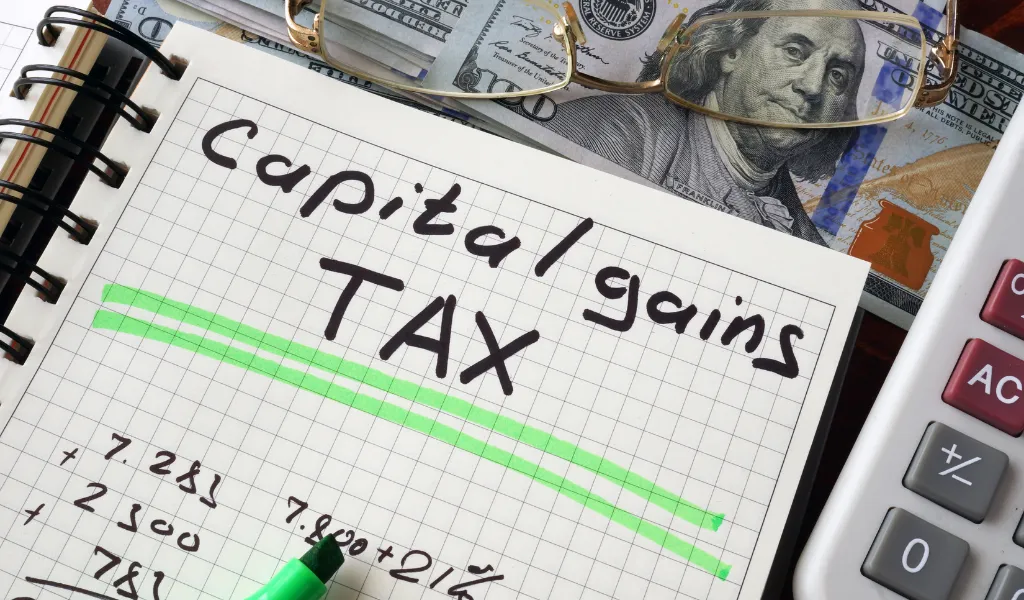As a property owner, you need to understand how tax applies to your rental income. If you are married, then you have certain benefits. The rules of tax are slightly different in this case, as you can transfer your rental income to your husband or wife. This guide will cover everything you need to know about rental income and completing your tax return. You will also find out how to transfer rental income to spouse.
First, let us discuss the definition of rental income. Then, we can move on to more complex matters.
What Qualifies as Rental Income for Property Owners?
Primarily, your rental income is the rent you receive from tenants. However, it also includes other payments tenants make for your services as the property owner. These include the following:
- Utility bills such as heating, broadband, water, including hot water.
- Repairs to the property.
- Cleanup of communal areas.
Any non-refundable deposits you charge for your property are also part of your rental income. Also, if you keep any money as a returnable deposit. You will return this once the tenancy ends. You can deduct expenses you bear from renting your property. Additionally, you can claim a tax credit. The basis for which is 20% of your mortgage interest payments.
When Do You Need to Pay Tax on Rental Income?
When you make profits in a tax year, you need to pay tax on it. The tax year starts on 6 April and ends on 5 April the next year. It is necessary to declare your rental income for the tax year in which it is due. Regardless of whether you pay before the tax year ends.
Furthermore, you can deduct any allowable expenses that relate to work done for a specific tax year. In this case, it is not relevant whether you pay the tax before or after the tax year is over.
Is income from property passive or active:
How to Complete a Tax Return for Rental Income
You need to inform HMRC regarding any rental income by 5 October after the end of the tax year. 5 April is the end of the tax year. Usually, you must complete a Self-Assessment tax return if you earn an income from rental property. In case of a paper tax return, the deadline is 31 October. Whereas for an online tax return it is 31 January the next year. It is important to know how to transfer rental income to spouse.
Main Tax Return
You must complete the main tax return if your total income is £10,000 or more from UK property. This is before you take away expenses. Also, if, after deducting rental expenses, your rental income is more than £2,500, then you need to fill in the main tax return. However, if it is less than £2,500, HMRC has other ways to collect the tax. They can do so through the PAYE system. That is, if you already pay tax through this method. You can contact HMRC for more information on how to complete your main tax return.
Supplementary Pages
You must complete the UK property pages if your income is from UK property, this includes UK holiday lets. In case you own property abroad, you need to fill in the foreign pages.
Under the circumstance that you are running a trade, you must complete the self-employment pages. Self-employment includes running a guesthouse, hotel, or a B&B. Also, this is applicable if you are earning a trading income. Therefore, you should know how to transfer rental income to spouse HMRC.
How to Declare Losses on Your Rental Income
You can carry forward losses from UK rental properties against future profits you generate from your UK properties.
Suppose in the tax year 2022-23, your rental income was £7,000. However, you claimed expenses are worth £10,000. Then, you should record a loss worth £3,000 for that year.
Please note that you cannot offset this loss against your other sources of income. For example, pension income or dividends. There is an alternative route. Suppose that in the 2023-24 tax year, you make £6,000 profit from your rental property. Thus, you can deduct your previous loss, which was £3,000. As a result, you owe tax on rental profits of £3,000 only. Thus, you should know transfer rental income to spouse.
What are Your Obligations When You Rent Out Your Property?
There are different thresholds for tax for individuals and sole trader property owners on their rental property income. You will find the tax thresholds for tax year 2023/24 below. Please note there are other sources of income on top of your rental income that count as taxable income. For example, from self-employed profits, interest made on investments and savings, pensions, wages, and reimbursed expenses. Property owners have the option to invest in property through partnerships, companies, and other corporate entities.
Suppose you decide to invest in a company. Then corporation tax applies to the profit you make. Currently, it is at 19% – 25%. This depends on the level of profits you are making in your company. It is vital to comprehend how to transfer rental income to spouse HMRC.
If you rent out a room in your principal residence, then your threshold for tax-free income is up to £7,500 per year. The Rent a Room Scheme allows you this threshold if you let out furnished accommodation in your primary home. It is always best to seek profession advice from a property accountant or a specialist property owner.
Personal Tax Rates for Income Received from Rental Properties
There exists a standard Personal Allowance of £12,570 for every person. You do not need to pay tax on this amount of income. If you claim Blind Person’s Allowance or Marriage Allowance, then your Personal Allowance can grow. However, if your income is more than £100,000, then it is smaller.
Here are the tax rates you must pay beyond your personal allowance:
| Personal Allowance | £0 – £12,570 | 0% |
| Basic Rate | £12,571 – £50,270 | 20% |
| Higher Rate | £50,271–£125,000 | 40% |
| Additional Rate | £125,001 and above | 45% |
How to Transfer Rental Income to Spouse
Married couples have the benefit of not triggering CGT or additional rate of SDLT when transferring rental income from a buy-to-let property between each other. That is, if they gift the equity for no consideration. By using the following processes, it is possible to transfer rental income to your spouse for HMRC declaration:
Deed of Assignment
Through a deed of assignment, you can assign the beneficial interest to your spouse. It does not matter if you are both named on the title or not.
Sever Joint Tenancy and Draft a Deed
If you own a buy-to-let property as joint tenants, it is necessary to sever this joint tenancy. You must become tenants in common. Then, you can use a deed to share the rental income. Furthermore, it is a requirement to file a FORM 17. With this form, you need to attach the deed. This is necessary for the declaration of what your actual shares are to the rental income to HMRC.
Transfer of Equity
It is possible to transfer rental income even if you own the property solely. You can do so after the transfer of equity process as you can add your partner onto the legal title. In case there is a mortgage, you need the consent of your mortgage lender. It is also probably necessary to add your spouse’s name to the mortgage.
Sale and Purchase
This option will cost you the most. In this method, the current owner needs to remove themselves fully from the title of the property. Then, their spouse will become the new owner. There are certain circumstances where this type of rental income to spouse is used. For example, divorce settlement. On the rent is paid, you owe tax on the share you own. By January 31st, you need to file a tax return and pay your tax to HMRC. This is for the rental income the tenant paid for the previous year up to April 5th. Immediate action on the above means immediate declaration of the rental income in the shares you want.
Now, you know how to transfer rental income to spouse.
What Tax Do You Owe on Transfer Between Spouses?
Following are the taxes you may end up paying when you transfer your rental income to your spouse:
Capital Gains Tax
When you dispose of any property that is not your primary residence, you owe capital gains tax. However, when you dispose of your rental property to your spouse, the rules for CGT differ.
Under the Taxation of Chargeable Gains Act 1992 – S.58 – Husband and Wife it states: “If, in any year of assessment, and in the case of a woman who in that year of assessment is a married woman living with her husband, the man disposes of an asset to the wife, or the wife disposes of an asset to the man, both shall be treated as if the asset was acquired from the one making the disposal for a consideration of such amount as would secure that on the disposal neither a gain nor a loss would accrue to the one making the disposal.”[1]
Basic Rate of Stamp Duty Land Tax
When you decide to split rental income for tax purposes, you can trigger the basic rate of stamp duty. This happens when the spouse who is named on the mortgage takes on a mortgage debt that exceeds the current rate of SDLT. The table below shows the basic rate of SDLT. Therefore, it is important to understand how to transfer rental income to spouse.
| Property Price | Basic Rate of Stamp Duty |
|---|---|
| Up to £250,000 | 0% |
| £250,001 – £925,000 | 5% |
| £925,001 – £1,500,000 | 10% |
| Over £1,500,000 | 12% |
Additional Rate of Stamp Duty Land Tax
When the transfer consideration of a second home is more than £40,000, then 3% additional rate of SDLT applies. Any money changing hands, or a mortgage share taken can be the consideration. HMRC state “For transfers on and after 22 November 2017, the higher rates rules disregard transactions solely involving the transfer of interests between spouses or civil partners while they are treated as living together on the date of purchase. ‘Living together` takes the definition in section 1011 of the Income Tax Act 2007. A married couple or civil partners of each other are treated as living together unless they are separated under an order of a Court, or they are separated by a formal deed of separation, or they are in fact separated in such circumstances that the separation is likely to be permanent.” [2]
Conclusion
To summarise, it is possible to transfer your rental income from a buy-to-let property to your spouse. There are plenty of methods you can use to do so. However, you should know the benefits and drawbacks of each. Moreover, you should know the tax that you may trigger when transferring rental income. Your circumstances determine the amount of tax you may end up paying. It is crucial to understand which option is best for you.
[1] Reference: UK Public General Acts 1992 c.12 Part III Chapter I Section 58 – legislation.gov.uk
https://www.legislation.gov.uk/ukpga/1992/12/section/58/2001-04-06
[2] Reference: SDLTM09820 – SDLT – higher rates for additional dwellings – individuals – purchasing without your spouse or civil partner – Para 9 and 9A Sch4ZA FA2003 – gov.uk
https://www.gov.uk/hmrc-internal-manuals/stamp-duty-land-tax-manual/sdltm09820








